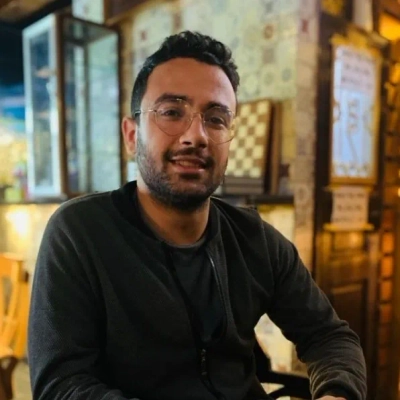We asked industry experts to share the best financial tips they’ve ever received and how it has impacted their personal finances. Here are concrete examples of how they applied this advice. Learn how to transform your financial habits and set you on the path to financial success with these financial tips.
- Treat Personal Finances Like a Business
- Pay Yourself First Every Month
- Make Your Money Work Harder
- Live Below Means and Invest Early
- Automate Savings as Non-Negotiable Bill
- Build Habits for Financial Stability
- Create Consistent Financial Systems
- Automate Transfers for Financial Goals
- Postpone Gratification for Long-Term Freedom
- Prioritize Savings Like Vendor Payments
- Invest Wisely with Slow Steady Methods
- Separate Personal and Business Finances
- Reinvest in Long-Term Value Generation
- Focus on Keeping Money Not Spending
- Build Emergency Fund for Stability
- Invest Automatically for Future Self
- Make Every Rupee Work for You
- Live Below Means Always
Treat Personal Finances Like a Business
The best financial tips I’ve received? Treat your personal finances like a business. This means creating actual budgets, maintaining balance sheets, running monthly P&Ls, building investments, and keeping cash reserves for liquidity. This shift in thinking moved me from paycheck-to-paycheck survival mode to strategic long-term wealth building.
When you apply business principles to personal finance, you start scrutinizing everything: Do I really need three streaming services I barely use? That monthly takeout spending could go towards an index fund contribution instead. I now reconcile my spending against budgets monthly, tracking variances just like I do with client accounts.
The discipline required to sit down and create these financial documents isn’t easy, and you don’t need the granular detail of business accounting, but the framework transforms how you view money. Instead of wondering where your income went, you’re actively directing it toward specific goals.
This approach helped me build a six-month emergency fund while regularly investing 20% of income: something that seemed impossible when I was just winging it month to month.
 Jeremy Rodgers
Jeremy Rodgers
Founder, Contentifai
Pay Yourself First Every Month
One of the best financial tips I ever received was: “Always pay yourself first.” It sounded simple at first, but it completely shifted how I approached money. Instead of saving what was left after spending, I started treating my savings like a bill — non-negotiable and due every month.
Let me explain with a real example. I had a monetized YouTube channel that was doing well, paying me every month. I never thought of paying myself until the channel was targeted and removed by YouTube for no apparent reason. That’s when I realized my mistake. So, pay yourself first.
For example, when I landed my first steady job, I set up an automatic transfer to move 15% of my salary into a separate savings account every payday. I barely noticed the money was gone because I never gave myself the chance to spend it. Over time, that habit helped me build an emergency fund that covered unexpected car repairs without needing to use a credit card and, more importantly, gave me peace of mind.
It’s a small mental shift, but it made a huge difference. Prioritizing myself financially made everything else more manageable.
 Joseph Benson
Joseph Benson
CEO, Joebenz Forex
Make Your Money Work Harder
The best financial tips I’ve ever received was painfully simple: “Make your money work harder than you do.” It sounded like a motivational poster at first — but it completely changed how I viewed income, wealth, and long-term security.
For years, I was laser-focused on active income — working more hours, growing revenue, chasing the next deal. But that financial tips forced me to rethink how I was deploying my energy versus my capital. Was I just working for money, or was I building systems that allowed money to work for me?
One concrete example: I started treating every dollar as an employee with a job. Idle cash sitting in a checking account? Unacceptable. I began by automating small, regular investments into low-cost index funds and later into angel investments aligned with my industry. I wasn’t trying to time the market or chase trends — I just wanted consistency, compounding, and control.
Over time, that small shift built a second engine alongside my business income — one that didn’t depend on my energy or attention every day. It gave me more than just financial return; it gave me freedom. Freedom to take bigger creative risks. Freedom to say no to the wrong opportunities. Freedom to take time off without guilt.
What made this financial tips so impactful was that it reframed wealth-building from being about working harder to working smarter — strategically placing capital in assets that grow while you sleep. It’s not flashy, but it’s foundational.
And in a world where hustle is glorified and burnout is common, that kind of financial clarity is the real flex.
 John Mac
John Mac
Serial Entrepreneur, UNIBATT
Live Below Means and Invest Early
The best financial tips I’ve ever received was incredibly simple: “Live below your means, avoid unnecessary debt, and invest early — especially in yourself.” It sounds like common sense, but adhering to these principles has had a massive impact on my financial well-being.
For me, the turning point was in my mid-20s when I realized that earning more wasn’t enough — I had to manage that money wisely. I made a rule to never spend more than 70% of what I earned, and to avoid debt unless it was going to generate income or long-term value. That mindset helped me keep my fixed costs low, especially in the early years when lifestyle inflation was tempting.
With the savings I was building up, I didn’t just park them in a bank account. I started investing — first in index funds, then in myself. I took courses, traveled, built new skills, and expanded my network. These experiences not only gave me better returns than most assets could, but they also opened doors to opportunities I wouldn’t have imagined before.
One concrete example: A few years ago, I used a portion of my savings to upskill and shift from a salaried role into contracting. That one decision — rooted in long-term thinking and financial discipline — significantly increased my income, gave me more freedom, and accelerated my investment journey.
Over time, compounding did its thing, not just financially but also professionally and personally. The trick isn’t to chase quick wins, but to consistently make smart decisions and trust the process. It takes patience, but it works.
 Denys Schwartz
Denys Schwartz
Director, constructionfront.com
Automate Savings as Non-Negotiable Bill
The best financial tips I ever received was: “Treat saving like a non-negotiable bill.” I used to save “whatever was left,” which, to be honest, was usually nothing. Once I automated a fixed percentage of my income to go straight into a high-yield savings account right after payday, everything changed.
One example? I managed to cash-flow a surprise $3,800 car repair without touching a credit card. That wouldn’t have been possible if I hadn’t been treating saving as a priority instead of a luxury. The habit built financial confidence, not just a cushion.
 Ahmed Yousuf
Ahmed Yousuf
Financial Author & SEO Expert Manager, CoinTime
Build Habits for Financial Stability
One of the best financial tips I received was: “Your income is temporary, but your habits are permanent.” This advice resonated with me, especially while working in a project-driven field where cash flow is not always predictable.
Early on, I began treating personal finances like a business budget: fixed costs, variable expenses, and a buffer for the unexpected. I built a six-month “personal runway” not just for emergencies, but to give myself breathing room to make smart choices.
During a quiet business quarter, instead of panicking, I relied on that buffer to attend two industry events. Those led to client wins that covered much more than the cost.
That move reminded me: stability doesn’t come from income spikes — it comes from how you manage in between them.
 Vikrant Bhalodia
Vikrant Bhalodia
Head of Marketing & People Ops, WeblineIndia
Create Consistent Financial Systems
The best financial advice I ever received was to build a system that prioritizes predictability over trying to perfectly time or outsmart the market. A mentor told me early on: “Consistency beats intensity when it comes to money.” That mindset helped me move away from financial stress cycles, waiting for the “right time” to save or invest, and toward automatic, steady habits that create long-term stability. It’s especially important as a small business owner, where income can fluctuate and unexpected expenses are the norm.
One concrete way I applied this advice was by setting up a separate, recurring transfer into a business emergency fund every month, no matter how tight cash flow seemed. At first, it was a small amount, just enough to be consistent. But over time, that fund gave me the flexibility to hire when the right person came along or weather a slow season without panic. It didn’t just improve my financial health; it also gave me more freedom to make values-driven decisions without being backed into a corner.
 Ed Hones
Ed Hones
Attorney at Law, Hones Law Employment Lawyers PLLC
Automate Transfers for Financial Goals
The best advice I received was: automate everything. It sounds simple, but it was a game-changer. I set up automatic transfers so that every paycheck automatically moves a fixed percentage into savings, investments, and a “fun” fund — before I even see it. One concrete example: I automated a monthly transfer into a high-yield savings account for a down payment. Years passed quickly, and when the time came, I had a house fund I barely had to think about. Out of sight, out of mind (and out of spend).
 Justin Belmont
Justin Belmont
Founder & CEO, Prose
Postpone Gratification for Long-Term Freedom
The best financial tips I’ve ever received was to live below my means. It sounds simple, and it is, but it’s also life-changing. There’s a lot of smart financial guidance out there about investing, saving, or planning for retirement, but none of it really matters unless you get this one right. Learn to postpone your instant gratification and, for a while, focus only on buying what you really need. This will give you the freedom to make better long-term decisions, both personally and professionally.
 Mike Handelsman
Mike Handelsman
CEO & Owner, FoamOrder
Prioritize Savings Like Vendor Payments
To be completely honest, the best financial tips I ever received was, “Pay yourself like a vendor.” This means treating your savings and investments as a non-negotiable line item, not something you’ll get to later.
It changed everything. I used to wait and see what was left over at the end of the month. Now, I automate a fixed percentage into an investment account on the same day I pay other contractors or subscriptions. One concrete example? I set up a monthly transfer into a low-fee index fund that has now become a safety net and a freedom fund.
The impact? I stopped treating saving as optional and started building long-term stability, even during periods of unpredictable income. That mindset shift built discipline without feeling restrictive.
 Vaibhav Kishnani
Vaibhav Kishnani
Founder & CEO, Content-Whale
Invest Wisely with Slow Steady Methods
Some of the best financial advice I’ve ever received pertains to investing, and it essentially states, “Investing money should never be exciting.” I believe the core of this advice is that when you’re investing, you should focus on slow, steady, and reliable methods, since real long-term wealth accumulation takes time when done wisely. It can be tempting to invest in “exciting” ways by taking gambles on high-risk, high-reward stocks. This advice has been valuable to me because it serves as a good reminder that it’s worthwhile to take the boring path and grow my money slowly but safely.
 Soumya Mahapatra
Soumya Mahapatra
CEO, Essenvia
Separate Personal and Business Finances
The best financial advice I ever received was to separate personal and business finances from day one. This helped me track expenses accurately, manage cash flow, and avoid surprises at tax time. For example, when I started using a dedicated business account and budgeting tool, I quickly realized where I was overspending on groceries and adjusted my menu planning accordingly. It gave me better control and confidence in scaling my business sustainably.
 Keagan Stapley
Keagan Stapley
Owner, NYC Meal Prep
Reinvest in Long-Term Value Generation
Early on, I was advised to reinvest every dollar into infrastructure that generates long-term value: people, systems, and IP. I resisted the urge to chase vanity growth like office space or flashy rebrands and instead focused on scaling up in-house SEO training, content pipelines, and automation tools.
This decision reduced recurring costs by 32 percent in the second year and nearly doubled our average client retention rate. It wasn’t glamorous, but it allowed us to grow rapidly without burning out or becoming bloated.
 Callum Gracie
Callum Gracie
Founder, Otto Media
Focus on Keeping Money Not Spending
“It’s not about how much you make — it’s about how much you keep.”
That one line completely shifted how I thought about money.
For years, I was making good money. I had a stable job in finance, and later, I built my own business. But the second money hit my account, it was gone. I’d spend on brunch, happy hour, designer bags, all under the mindset of, “I work hard, I deserve this.”
I used to joke that I spent money like a teenage girl, but deep down, it came from a fear I didn’t fully understand at the time: If I didn’t enjoy it now, it could disappear tomorrow. I grew up watching money come in waves — big income one season, nothing the next — and that scarcity pattern stuck with me.
The turning point?
When I finally sat down and looked at my numbers, I realized I wasn’t building anything sustainable. So I started small: every time I got paid, I’d automatically move a percentage into savings. I called it “paying future me first.” I also created a spending plan that included joy, but with boundaries.
That shift gave me more than savings. It gave me peace. I finally felt like I had options, stability, and space to breathe.
It taught me that real wealth isn’t about what you can buy; it’s about what you can keep.
 Cindy Kumar
Cindy Kumar
CEO, CPA, Fractional CFO, Elevated Accounting
Build Emergency Fund for Stability
The best financial advice I’ve ever received is “building an emergency fund.” This saved me a great deal when I had to suddenly relocate for my mental well-being and personal growth.
I used to be very ignorant and disorganized when it came to money, but everything changed for me.
When I learned to build an emergency fund, it immediately flowed to other areas of my financial stability such as budgeting, saving, investing, and ultimately made me realize the need to increase my income.
Here’s how I did it.
First, I calculated how much expenses I incurred per month and set aside 6 months’ worth.
For example: If my monthly expenses were $200, that would be $200 x 6 = $1200 for emergency funds.
Then I divided that into daily savings in bits. In 6 months, your emergency fund would have been built.
Most people do 3 months, but I decided to use 6 months.
Here is how it impacted other areas of my financial stability automatically:
- I started to track my income report every month to know how much my business was bringing in. This also helps me know where to improve.
- I learned to budget and only spend on NEEDS first and not unnecessary wants.
- I started to become more disciplined with money and my business in general.
Ultimately, I became more professional and increased my income, and I’m still doing so today.
 Prosper Noah
Prosper Noah
Founder, Tipsonblogging
Invest Automatically for Future Self
The best financial advice I’ve ever received, and how it has affected my life financially, is:
“Treat your future self like your most important client and automate some percentage of every commission check into diversified investments before you ever even see it.”
I created an automated standing order to take 20 percent of my own paycheck off the top and invest it into a mix of low-fee index funds and, somewhat alternatively, private real estate syndications, non-traditional vehicles consistent with my STR expertise. By my 100th acquisition, those systematic contributions had appreciated just shy of 20 percent and allowed me to fund the down payment on my first personal vacation rental without leveraging my daily budget. That “set-it-and-forget-it” discipline performed better than any market-timing I had attempted when I was younger, and it would serve as the foundation of my long-term wealth plan.
 Taylor Jones
Taylor Jones
Head of Acquisitions, STR Search
Make Every Rupee Work for You
The best financial advice I ever received was this: “Never let your money sit idle — make every rupee work for you.”
This advice sounds simple, but it’s incredibly powerful. It reshaped the way I view personal finance — not just as something to manage, but as something to optimize. Whether it’s savings, investments, or even credit, the idea is to align every financial decision with strategic intent and long-term growth.
Early in my career, I had built up a decent emergency fund — about 12 months’ worth of expenses — and it sat entirely in a traditional savings account. While safe, it wasn’t working for me.
Inspired by that advice, I reallocated the fund smartly:
- Kept 3 months of expenses in a high-yield liquid fund.
- Placed the next 3 months into short-term debt funds.
- Invested the rest in a laddered mix of low-risk bonds and ultra-short funds — ensuring liquidity while still earning 2-3 times the return of a savings account.
The impact?
That one shift grew my “idle” cash by over 6% annually — completely risk-managed — while maintaining emergency access.
This principle of making money intelligent is exactly what we deliver — combining technology with strong financial planning to ensure people don’t just save, they grow. Whether it’s smart investing, optimizing credit, or simplifying wealth creation, the goal is always the same: Make every rupee work.
 Vijay Kuppa
Vijay Kuppa
CEO, InCred Money
Live Below Means Always
Honestly, the best financial advice I’ve ever received was: “Live below your means — even when you start making more.”
It resonated with me when I secured my first significant business success. I was tempted to upgrade everything — a nicer car, a better office, more tools. However, an older mentor of mine advised, “If you scale your lifestyle with your income, you’ll always feel broke.”
That advice stuck with me.
Instead of inflating my expenses, I allocated the extra income toward an emergency fund and paid off some lingering debt. A year later, when business temporarily slowed down, I didn’t panic — I had savings, no credit card pressure, and options. That one habit provided me with peace of mind I didn’t even realize I needed.
Now, I still treat any extra income as temporary. I save it, invest it, or reinvest it into the business. It’s not glamorous, but it has made my finances far more stable — and helped me sleep better.
 Abin Joe
Abin Joe
Senior Bdm, Knote Group







